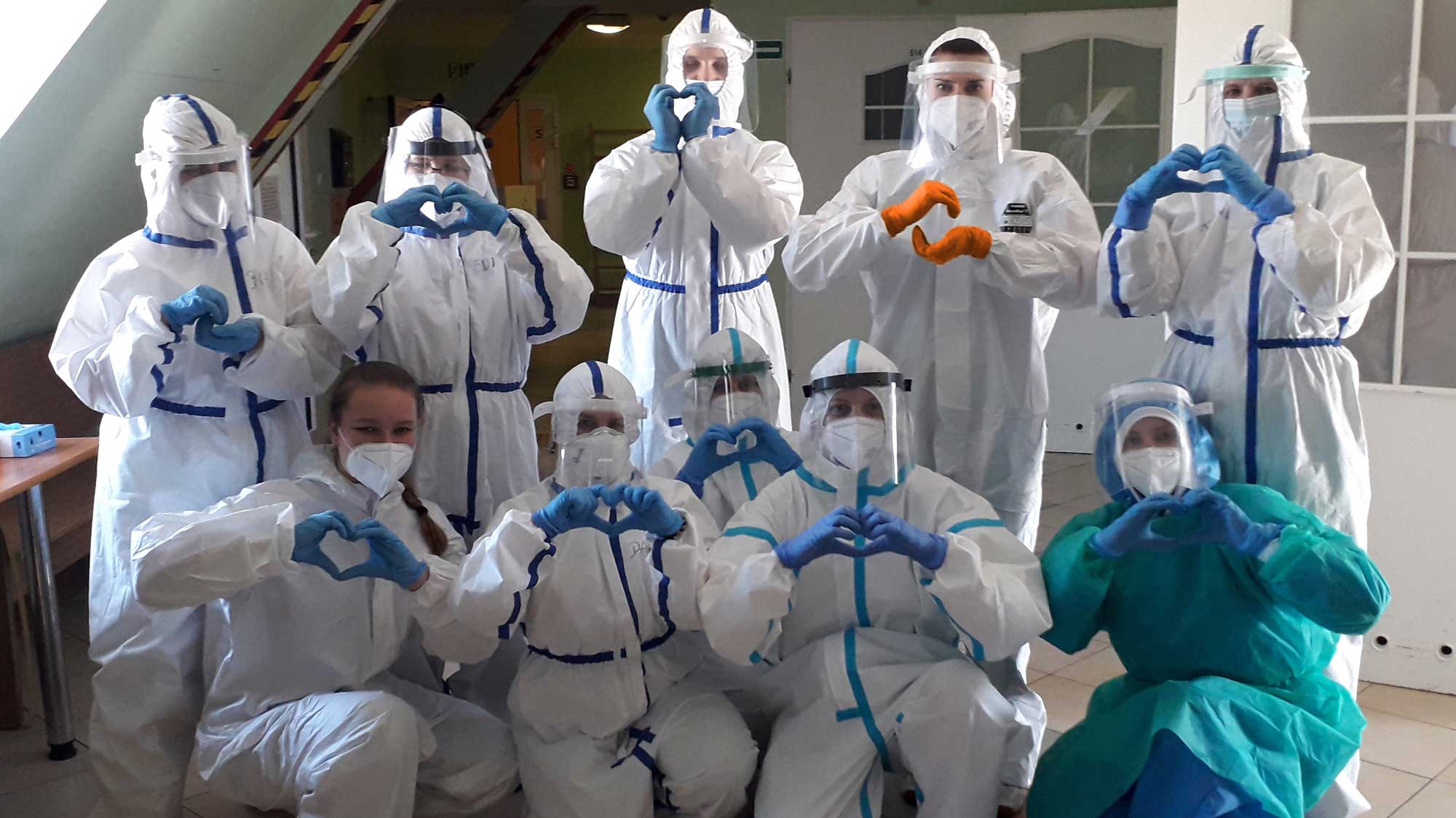Our communication specialist Małgorzata worked for Caritas charity organisation as a volunteer taking care of COVID-19 patients during her holiday leave.
I perceive voluntary work as an addition to my professional activity and an opportunity to share what I have. It lets me take a broader perspective on what I do and who I am. The key aspect of such work is acting unselfishly to help people in need and the chance to see that giving makes so much sense.
My journey as a volunteer started in January 2020, in the Caritas Therapeutic and Nursing Centre in Warsaw. Following a training course and meetings with a psychologist and volunteers’ coordinator, I was asked to volunteer on the long-term care ward for the chronically ill, disabled and elderly or patients who required comprehensive and round-the-clock care. My tasks covered being there with the patients: talking and listening to them, feeding, caring for them, and sometimes simply holding their hand.
At the beginning of March, when the COVID-19 pandemic was announced in Poland, all visits to the Centre, including those of voluntary workers, were suspended. A month later, I received an e-mail from the volunteers’ coordinator describing the very difficult situation of the 2nd Ward for women in the Caritas Centre. A nurse who worked concurrently in another medical facility turned out to have a positive swab test result. The tests conducted on other workers and all the patients on this ward showed that we had 21 out of 40 patients and 4 members of the medical personnel infected. There was a risk of the virus spreading to all the remaining wards of the Caritas Centre and to 150 patients. From the moment the first case was confirmed, care on the 2nd Ward was provided non - stop and 24 hours a day by the same staff: 1 doctor, 2 nurses and 4 medical attendants. There were two Patients who needed to be admitted to a specialist infectious disease hospital.
The Centre urgently started to search for nurses, medical attendants and volunteers to take care of the patients.
The situation became dynamic and unpredictable. Just then I received a message from the Caritas volunteers’ coordinator that they were looking for help in caring for the patients. I decided to respond. After I had obtained the consent of the Country Manager of Diaverum Poland, and thanks to the support of my colleagues who agreed to take over my tasks during my absence from work, I requested a two-week holiday and volunteered to help with the COVID-19 patients.
We had sets of professional personal protection equipment ensuring an effective protective barrier for people working on the infected ward. The sets were the same as those used in a specialist infectious disease hospital: isolation gowns, coveralls, face shields, professional face masks, gloves and disinfection agents. Considering the level of the safety measures, the people who worked on the infected ward did not have to be kept isolated in the Centre.

In the beginning I found it very difficult. We had 12-hour shifts. As a person with no medical expertise, during my first shift I did the cleaning tasks on the ward. The next day, I joined the team of medical attendants. An experienced member of the team introduced me gradually to the organisation and safety rules of the patients’ care. The duties of medical attendants covered patients’ hygiene: washing, bathing, changing clothes, basic cosmetic procedures, feeding and changing incontinence pads. We did all the work at a great pace and under pressure of time. As early as the next day, during my third shift, as there was an insufficient number of attendants, I was asked to introduce and present the work rules to a new person in our team. Honestly, it was so stressful. We all were in a situation in which we had to react quickly and solve problems immediately.
IIn the following days, we noticed a tendency of gradual health deterioration in some patients. Considering the symptoms, we started to prepare to face possible new Covid-19 cases. We also received the information that one of the nurses who had been a member of the first team taking care of the ill patients was infected. So, three of the most experienced medical attendants who had had contact with the nurse were barred from work and quarantined. Once again, we had to deal with personnel shortage issues. Fortunately, soon some nuns and monks responded to our requests for medical support.
The patients on the ward were worried mainly because they could not meet their close ones. They did not really fear the exposure to the virus, but the inability to contact their children and grandchildren. That was why a psychologist returned to the ward to talk with the patients and put them on the phone with their families.
I spent two weeks there and worked 168 hours as a medical attendant. Helping people who need you the most brings great satisfaction! I would say, the voluntary work teaches you to be responsible for another person. You get the feeling that you are doing something that is good, that really matters, and that you are needed, and valuable.